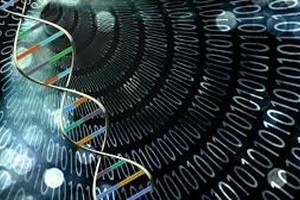
As the complexity and volume of global digital data grows, so too does the need for more capable and compact means of processing and storing data. To address this challenge, DARPA has announced its Molecular Informatics program, which seeks a new paradigm for data storage, retrieval, and processing.

Instead of relying on the binary digital logic of computers based on the Von Neumann architecture, Molecular Informatics aims to investigate and exploit the wide range of structural characteristics and properties of molecules to encode and manipulate data.
“Chemistry offers a rich set of properties that we may be able to harness for rapid, scalable information storage and processing,” said Anne Fischer, program manager in DARPA’s Defense Sciences Office. “Millions of molecules exist, and each molecule has a unique three-dimensional atomic structure as well as variables such as shape, size, or even color. This richness provides a vast design space for exploring novel and multi-value ways to encode and process data beyond the 0s and 1s of current logic-based, digital architectures.”
Molecular storage concepts, such as those based on DNA sequences, have advanced in recent years and show promise for archiving digital data in a format that takes up extremely small physical space, Fischer said. But DNA storage doesn’t allow for rapid retrieval and processing of selected portions of the DNA-encoded data without having to first decode the molecule-based data back into an electronic digital format to use with existing information systems. The primary technical challenge posed by the Molecular Informatics program is the integration of dense storage concepts with processing of molecule-encoded information via completely new, non-binary information structures. The intent of the program is to explore such opportunities in the much broader design and encoding space of millions of molecules, which offers far more opportunity than do the four building-block molecules (As, Ts, Cs, and Gs) of DNA.
To achieve its goals, the program will require a diverse, collaborative community of researchers from fields including chemistry, computer and information science, mathematics, and chemical and electrical engineering. These integrated teams will need to answer foundational questions such as: How can data be encoded in molecules? What types of data operations can molecules execute? What does “computation” mean in a molecular context? By addressing mathematical and computational problems that challenge our current capabilities, the Molecular Informatics program aims to discover and define opportunities for the use of molecules in information storage and processing.
“Fundamentally, we want to discover what it means to do ‘computing’ with a molecule in a way that takes all the bounds off of what we know, and lets us do something completely different,” Fischer said. “That’s why we absolutely need the diverse knowledge of many different fields working together to jump into this new molecular space to see what we can discover.”
